March 10, 2025
Shopify vs. BigCommerce: Which Platform Wins for Scalability?

Full-Stack Developer, Content Creator, and Product Dev Guy

No doubt, with the continuously evolving digital era, new eCommerce platforms are introduced every year. However, gaining popularity for those platforms is difficult due to the high competition. People and search engines prefer those platforms that provide various features and functionalities. Shopify and BigCommerce are the top eCommerce platforms on search engines. Additionally, these platforms are also popular globally.
Now the question arises: Shopify vs BigCommerce? Which platform offers more scalability options for your business? Also, which online platform is best for you when you launch an online store? Because online platforms can make or break your success.
In this blog, we'll find out.
- Quick Overview of Shopify vs BigCommerce.
- Why Should You Consider Shopify vs BigCommerce?
- Comparison of Shopify vs BigCommerce.
- Final Review - Shopify vs BigCommerce.
- Professional Suggestion: Which one is Right For Your Online Store?
Quick Overview: Shopify vs BigCommerce
Shopify
Shopify is a popular e-commerce platform. It enables small to medium and large-sized businesses to create and manage online stores. Shopify offers the following various features to all digital online stores:
- Easy to Setup and Use: Shopify's setup process is straightforward, and its drag-and-drop builder makes it easy to design, launch, and manage stores immediately.
- Themes Customization: Shopify offers various customizable themes that fit every business brand. It offers more than 100 professional theme designs.
- App Integration: Shopify provides robust app store features. It offers you more than 8000 third-party apps and allows you to extend site functionality.
- Payment Gateways: Shopify supports a wide range of payment gateways such as:
- Shopify payments
- PayPal
- Stripe
- Amazon gateways.
- Analytics and Management: Shopify provides built-in tools for managing inventories, stock tracking, robust analytics tools, and automatic reorder reminders.
- Multi-Channel Selling: Shopify allows sellers to reach customers across various channels. It includes marketplaces e.g., Amazon and eBay, and social media platforms e.g., Instagram and Facebook.
- Customer Support: Shopify provides 24/7 customer support.
BigCommerce
BigCommerce is a trusted eCommerce platform that helps businesses to create and manage online stores. BigCommerce is a Shopify alternative and competitor platform designed for large businesses and enterprises. It offers multi-channel selling, advanced SEO capabilities, and B2B functionalities. BigCommerce provides the following features:
- Themes: BigCommerce offers over 200 themes. It offers customization options but requires you to have coding knowledge.
- Built-in Features: BigCommerce offers more pre-made features. However, you need to understand learning curves to grip on them. The BigCommerce interface isn't as intuitive as Shopify. It is best for the users who have some technical knowledge.
- Setting Up: BigCommerce is mostly for users who have deep technical knowledge. Beginners need time and knowledge to work with this platform.
- Pricing Structure: Although BigCommerce's pricing structure is closer to Shopify's, it offers a big advantage. BigCommerce doesn't charge transaction fees for regular monthly subscriptions.
- Customer Support: BigCommerce also offers 24/7 customer support as Shopify. However, its response time is a little bit slow.
Why Should You Consider Shopify Over BigCommerce?
Shopify vs BigCommerce? Which platform should you choose? The decision can be complicated. No doubt, BigCommerce offers almost the same pricing structure as Shopify and does not charge any transaction fees. In addition, it provides security and support. Shopify also offers you the same features but has a transaction fee. So why should you consider Shopify over BigCommerce? Let's find out!
Although Shopify charges you transaction fees, it still offers more features than BigCommerce. Shopify is easy to use and provides customizable themes, sales, and marketing features.
Shopify is a step ahead of BigCommerce as it offers you headless commerce features. In addition, Shopify is more popular as compared to BigCommerce. Here are the Google Trends of Shopify vs BigCommerce for the entire year.

Not just these factors, Shopify also gives you pre-made abandoned cart recovery and SEO optimization tools. You can manage your businesses using the Shopify mobile app to fulfill orders, add products, and more. It empowers all-sized businesses to create and grow their online presence. Due to scalability, security, and global reach features, Shopify has become a go-to choice for online stores.
What Does Shopify Do Better: Comparison of Shopify vs BigCommerce
Shopify vs BigCommerce? The decision might be tough for you. Well, it is! Since both platforms have almost the same features regarding pricing structure, security, and a bit of support. However, there is more difference between the two platforms than the relationship. Let's explore the Shopify vs BigCommerce comparison and if you want to switch to Shopify which platform is best for you? Let's find out!
Shopify is Easy to Use
Easy to use features are essential not only for beginners but also for experienced entrepreneurs. Let's find which platform is easy to use when comparing Shopify vs BigCommerce.
Setting up new things with Shopify is very easy as its dashboard is minimal and easy to navigate. It is an easy-to-use platform that allows you to design your store fast. It is due to Shopify supporting fully hosted solutions that means everything is set up for you. In this platform, you don't even require any technical knowledge about coding.
On BigCommerce, you require technical skills to learn carves. Also, when BigCommerce launched, it always targeted users who had little experience in setting up websites. So, you know about coding to design your online store on BigCommerce.
Shopify Offers Themes and Design
Shopify offers you over 230 themes for different industries and styles; of which 13 are free. The price range of Shopify themes is $100 to $350. It provides you with more high-quality and well-optimized themes than BigCommerce. Additionally, all the Shopify themes are mobile-friendly and automatically fit and reform on any screen size. Shopify allows you to switch between themes without losing website content.

It is a best practice for you to check the free demo of the paid Shopify theme to learn about its features and brand alignment.
In contrast, BigCommerce also provides you with 200+ themes according to industries and styles, of which 12 are free. Free themes in BigCommerce are best for beginners. However, theme customization options require technical knowledge.

Shopify Offer Marketing Features
Marketing features are a great way to boost your online store sales. Shopify and BigCommerce both offer marketing tools to help brands grow their online stores. However, in Shopify vs BigCommerce, which platform offers you the best marketing features? Let’s find out here.
Marketing Tools
Shopify offers various marketing tools to engage customers such as:
- Social media platforms: Facebook, Instagram, TikTok.
- Shopify marketplace connects apps to sell on Amazon, ETSY, or other marketplaces.
Not only this, Shopify gives you robust email marketing features. Shopify email marketing is an effective plan for promoting products, services, and brands. Email marketing is a powerful way to increase sales and customer relationships. It is a conversion-rich and low-cost way to market online stores.
BigCommerce also provides different marketing tools. It is popular for creating promotional banners and automated emails for cart abandonment or purchases. However, you need to install relevant apps to design personalized email marketing campaigns or connect with various social media platforms.
SEO
Shopify has built-in SEO features. It supports advanced tools such as clean semantic code, custom meta tags, and automated sitemaps. It offers you a user-friendly interface with a clean URL structure and schema markup. Shopify also provides you with a fast page loading speed feature. It is an important ranking factor in search engine result pages (SERPs).
BigCommerce also has pre-made SEO features. It gives you full control over title tags, header tags, meta tags, and URLs the same as Shopify. Both Shopify vs BigCommerce have pre-made blogs and powerful content marketing tools. However, Shopify provides you with more features for optimizing your store sites for search engines.
Shopify Offer Payment Options
Shopify offers over 100 payment methods, including popular options like Apple Pay, PayPal, and Google Pay. You can enable multiple payment options at the same time, giving your customers to choose their preferred option at checkout. Shopify also provides native payment options called Shopify Payments.
In contrast, BigCommerce gives you 65+ payment gateway options, including Stripe and PayPal. Additionally, the BigCommerce standard plan starts from $29/annually and the Shopify Basic plan starts from $19/yearly. However, BigCommerce does not charge you transaction fees on all plans. While Shopify transaction fees decrease with plan upgrades.
Shopify Offers Best Customer Support
Almost every online store needs customer support on various issues. That's why it's important to choose the platform which offers the best customer support. Shopify is one of the popular eCommerce platforms that gives you 24/7 customer support via live chat and emails. Furthermore, they offer Shopify Academy to help you to polish your skills.
No doubt, BigCommerce also offers better customer support service. But, its response time is a little bit slow as compared to Shopify. BigCommerce also guides its customers through blogs.
Headless Commerce with Shopify Hydrogen
Headless commerce with Shopify Hydrogen is the latest eCommerce trend. It separates the store's front-end presentation layer from the back-end eCommerce functionality. This separation allows customization, greater flexibility, and fast page load time. Headless commerce helps you to enhance overall store performance and user experience.
Shopify Hydrogen is a react-based framework designed to work seamlessly on Shopify's back end. It is used to design custom storefronts and leverages the power of robust API. Hydrogen enables developers to design highly customizable online stores. It offers tools and built-in components to optimize store performance and scalability.
Conversely, BigCommerce doesn't offer the front-end framework. However, it provides a flexible API-driven approach.
Shopify Has More Market Shares
Shopify is one of the fastest and most popular players among other eCommerce platforms. This is not because of its interface, user-friendliness, and high scalability options; however, there is strong data to support it. Various features are similar to Shopify such as close pricing, security, and customer support. But, Shopify is a step ahead in terms of popularity, market share, and adoption.
BuiltWith data shows that Shopify has over 9.2 million websites and this makes it the fastest-adopting eCommerce platform worldwide. BigCommerce has 135,000+ websites.
While market shares, according to Stock Analysis, Shopify has a market cap of over $159 billion. BigCommerce has a market cap of over $489 million.
Shopify Offer More Scalability Features
Scalability is one of the important factors to consider while choosing any eCommerce platform. This feature helps your business to handle all things when your business grows such as:
- Increased traffic
- Expanding product catalogs
- Complex business operations and more without technical limitations.
Shopify vs BigCommerce, both powerful platforms offer scalability features. However, which offers better scalability, let's find out.
Hosting and Performance
Shopify provides fully managed cloud hosting to ensure your online store runs smoother even in high traffic. It offers you a fast-loading page and global CDN to improve site speed. Shopify enables merchants to handle millions of visitors without the need for server upgrades or technical configurations.
BigCommerce also offers fully managed and high-performance hosting. It supports large-sized businesses to manage high traffic without additional costs.
In short, Shopify and BigCommerce are fully managed and high-performance hosting platforms.
Scalability for High-Traffic and Enterprise Business
Shopify offers Shopify Plus for large-scale businesses and entrepreneurs to handle millions of transactions per minute. Furthermore, its advanced automation, custom checkouts, and exclusive APIs scale operations efficiently.
BigCommerce also provides custom and flexible APIs. But, it is not tied to a specific front-end framework. BigCommrece supports custom B2B and complex pricing models for large businesses.
Shopify and BigCommerce both support exclusive APIs however, Shopify has a large market share. It offers more automation and scalability tools for business growth.
Product and Catalog Scalability
Shopify supports unlimited products and up to 100 variants with flexible management. It provides you with advanced inventory management and a vast app ecosystem for extra catalog management features.
In contrast, BigCommerce supports unlimited products depending on the storefront. It allows you to create a maximum of 600 variants per product. BigCommerce offers pre-made customization options for products. Also, it allows large businesses extensive catalog options without using third-party apps.
To summarize, BigCommerce gives more built-in customization options for products.
Multi-Channel Selling
Shopify supports seamless omnichannel commerce. It enables you to sell across multiple channels such as Facebook, TikTok, Instagram, Amazon, ETSY, and more. Furthermore, Shopify provides POS and allows businesses to synchronize online and offline sales. In addition, Shopify Plus helps B2B and wholesale selling with bulk ordering operations and custom pricing.
Conversely, BigCommerce supports multi-channel capabilities. It allows you to integrate sales channels such as Amazon, Google Shopping, ETSY, and Facebook. It also gives you pre-made B2B features for wholesale online stores.
Shopify and BigCommerce, both platforms provide strong multi-channel selling features. Both have their different properties like Shopify offers great omnichannel capabilities with POS integrations. While BigCommerce has the edge in B2B capabilities.
Apps and Addons
In growing eCommerce platforms, having flexibility and customization is essential for online stores. Let's examine the apps and more scalability options for both Shopify vs BigCommerce.
Shopify offers 8000+ apps in its app store — the biggest app store on the market. You can easily find any app for your online store. Shopify provides you with trendy apps and you can also select apps according to your category. Such as shipping and delivery apps, customization tools, or sales and marketing features.
In addition, Shopify developed Shopify Plus for online stores that want to grow globally. It offers advanced features and tools that provide multi-channel selling and advanced security and analytical tools.
On BigCommerce, you can get the benefits of more than 1500 apps from different categories. As BigCommerce has more built-in features that's why it is less reliant on third-party apps.
Internationalization
Shopify enables large businesses to scale globally in 150+ countries effortlessly with Market Pro. This pre-made Shopify feature allows sellers to sell internationally and cover processes such as:
- Shipping Process
- Local payment methods
- Collecting duties
- Fraud protection
While BigCommerce provides international support features. However, it relies on third-party apps.
Summary of Scalability Features: Shopify vs BigCommerce, Who Wins?
If we summarize the whole features, Shopify offers more scalability features as compared to BigCommerce. No doubt, BigCommerce provides strong pre-made features and multi-storefront capabilities. Shopify offers better app integration, automation, and enterprise scalability tools. If you're looking for seamless scalability options to grow your business then Shopify is the best choice for long-term growth. It gives you more flexible, automation tools, and global expansion options to efficiently handle business growth.
Shopify offers tools and covers all sizes of businesses such as:
- For Small and Medium Businesses: Shopify's easy-to-use features and app ecosystem are the best choice.
- For Large Enterprise: It offers Shopify Plus that provides better scalability features.
Here the image shows a Shopify vs BigCommerce comparison.

Final Review - Shopify vs BigCommerce: Right Platform For Online Stores?
Shopify vs BigCommerce? The choice depends on your business needs. Both platforms have different technical expertise and budgets.
Shopify is an ideal choice for all businesses as it provides an all-in-one hosted solution and scalability features. This platform offers:
- Advanced design capabilities
- Well designed interface
- Easy-to-use features
- Advanced sales and marketing features
- More themes and templates
- Fast speed and high-performance
- Enhanced security.
- Visually stunning online presence.
- Internationalization tools for scalability and best future-proof choice for growing businesses.
BigCommerce is popular for offering the functionality required for creating and managing online stores. This platform is designed for large businesses and enterprises. BigCommerce may require technical skills for advanced features. BigCommerce offers:
- Almost the same pricing structure as Shopify but it offers no transaction fee.
- Offer various payment gateways.
- Requires coding knowledge.
- Provide different sales and security features.
- Have native eCommerce solutions and various third-party apps on a global scale.
Professional Suggestion: Which one is Right For Your Online Store?
Shopify and BigCommerce, both platforms offer online store services and great options for your business. While these platforms provide similar pricing plans, sales, and security features. They also differ in their unique features and functionalities. Both platforms include built-in and third-party scalability options. After exploring the in-depth article about Shopify vs. BigCommerce, you will have a clear idea of what suits your online store and how to scale your business growth. eCommerceDev Biz professional suggestion is:
If you have a tight budget and are tech-savvy with advanced features, then choose BigCommerce. The platform offers a 15-day free trial, so it’s a great opportunity for small businesses and entrepreneurs to get familiar with the platform. BigCommerce also provides you with scalability features to grow your business. Additionally, it allows you to manage multiple stores through a single backend, just like Shopify. BigCommerce has a variety of e-commerce solutions and third-party apps to help you scale globally.
In comparison, Select Shopify, if you have a handsome budget to start your online store. Shopify provides a 3-day free trial and charges $1/month for a 3 month trial period. Additionally, it offers you a pre-made hosting solution, which means this platform handles everything for you. Shopify is brilliant for inventory management, security, and customer support. Not only this, it provides unmatched headless commerce and marketing features. Shopify handles different stores through one dashboard and has pre-built internationalization tools. Shopify offers you the best tools for scalability and growing your business to the next level.
Get 0 to 1 with your Shopify Store
We love working with companies looking to succeed at Shopify
More Articles
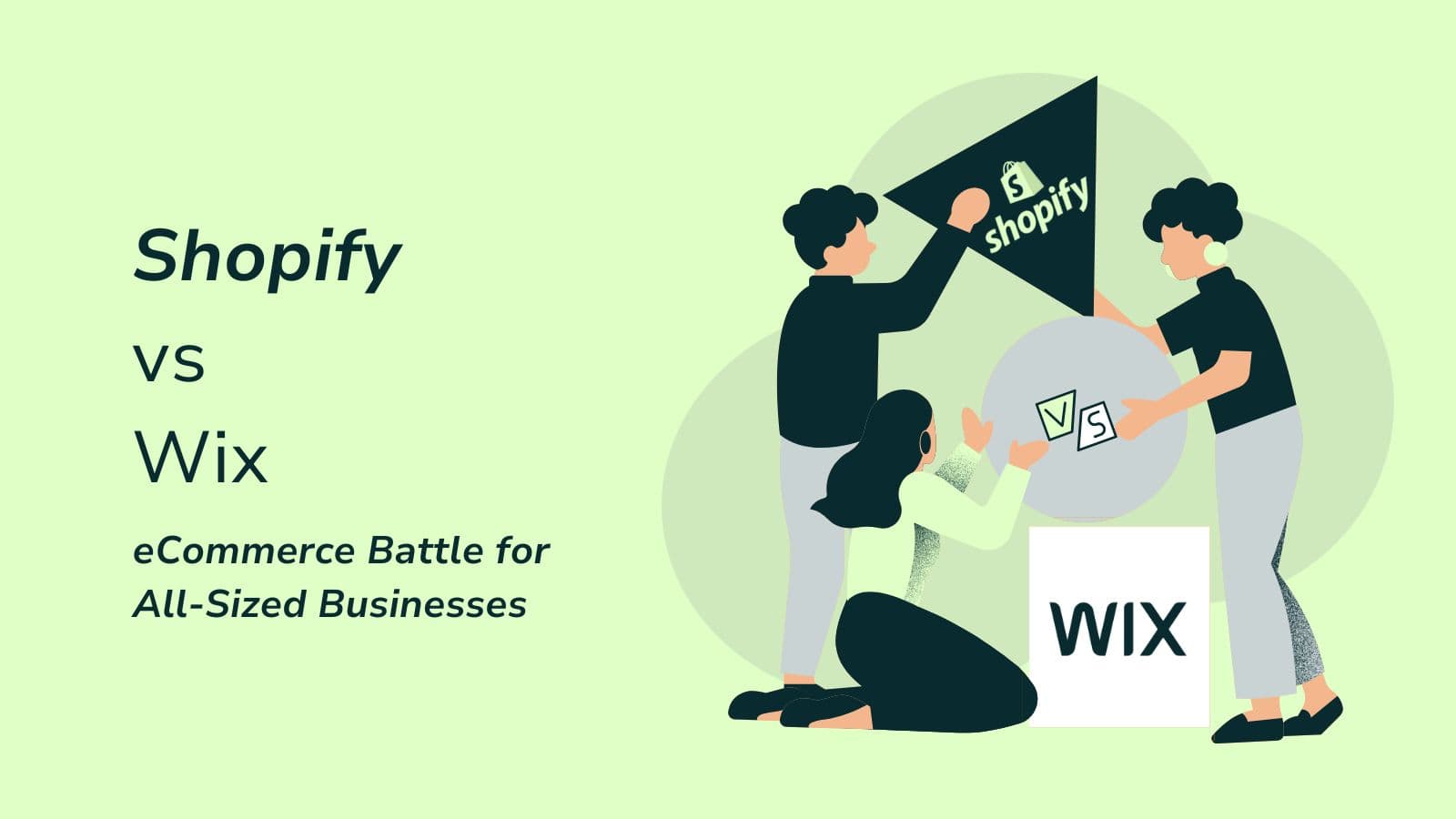
comparison
Shopify vs Wix: eCommerce Battle for All-Sized Businesses
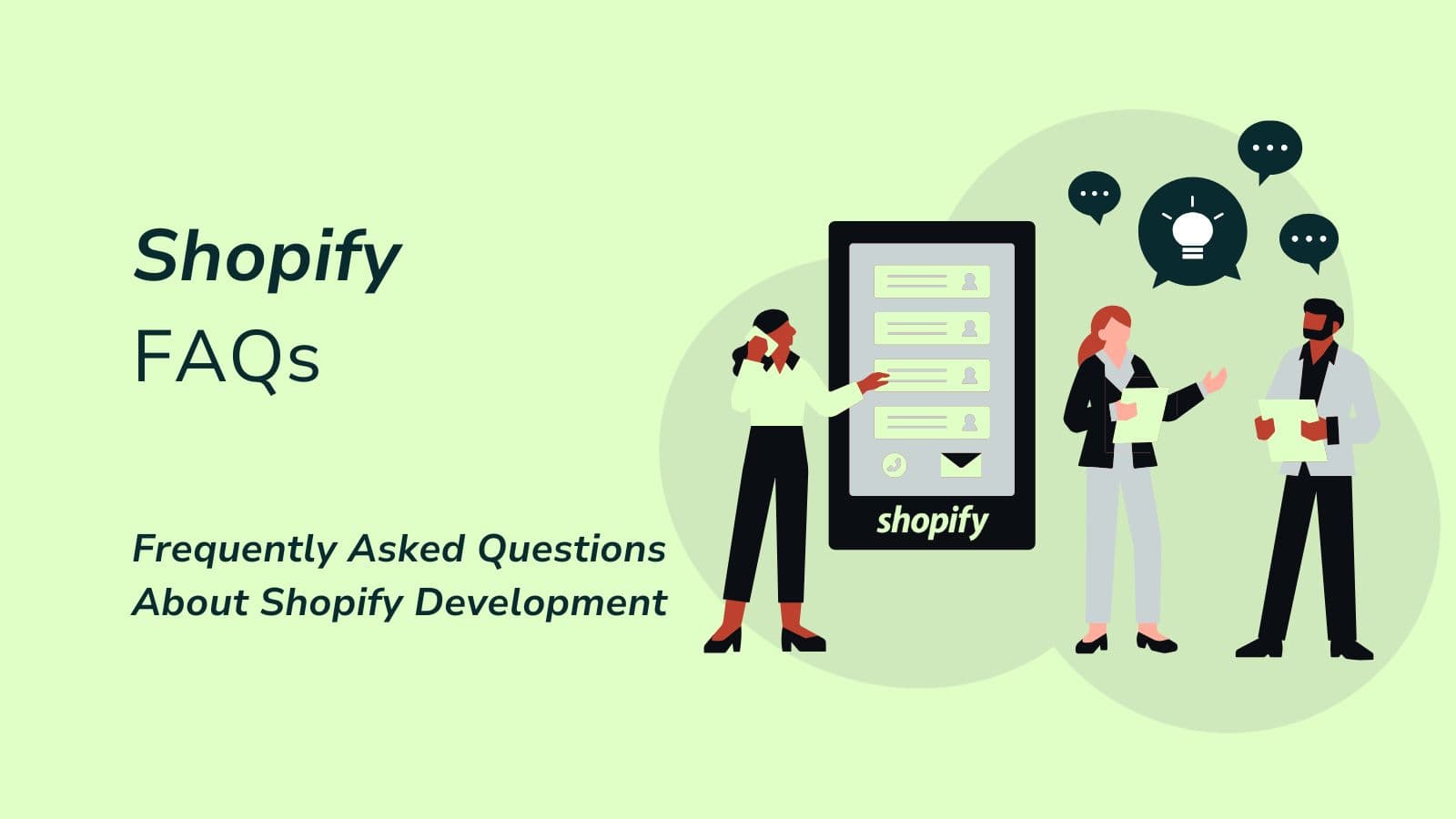
comparison
Shopify FAQs: Frequently Asked Questions About Shopify Development
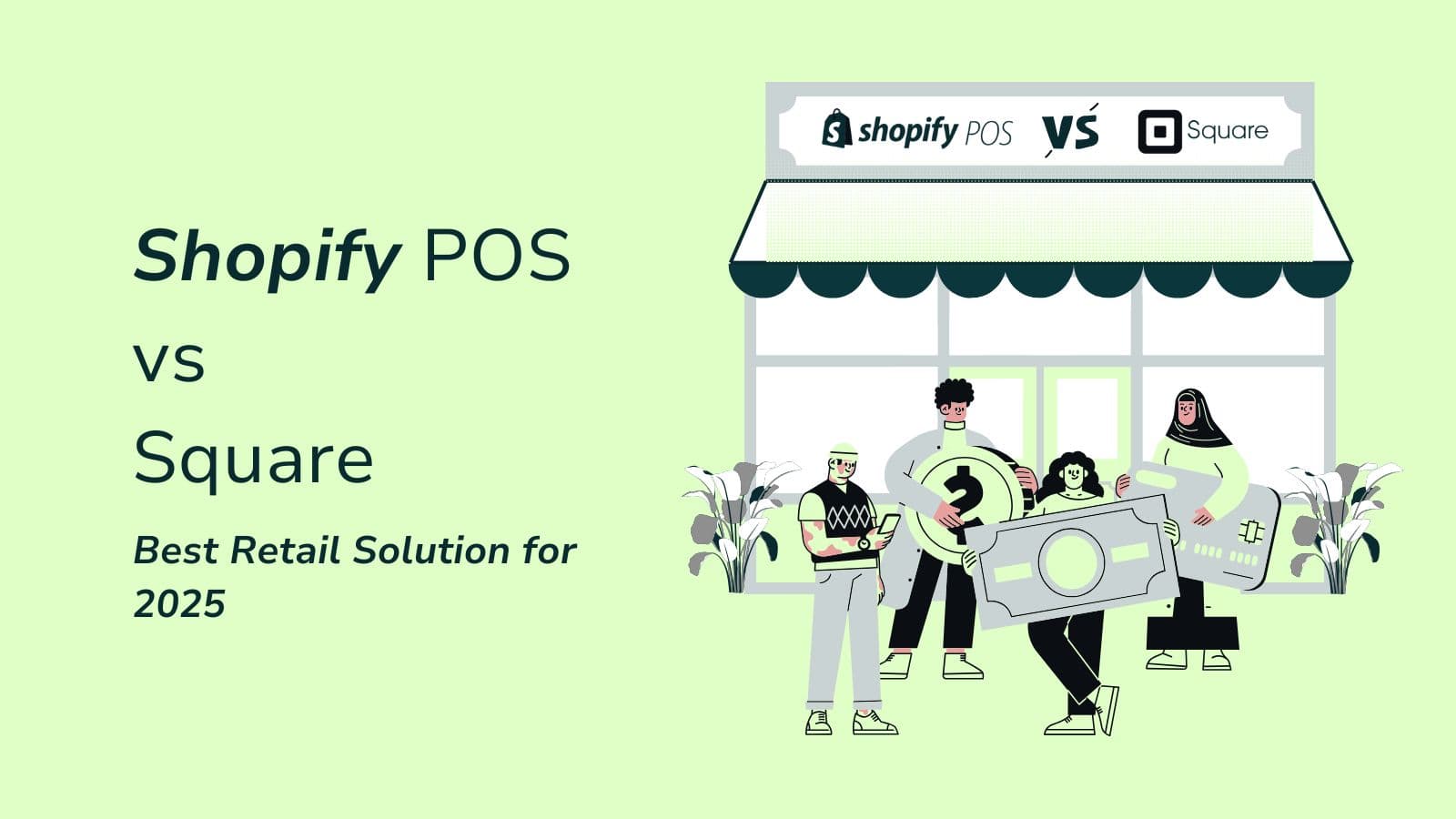
comparison
Shopify POS vs Square: Best Retail Solution for 2025
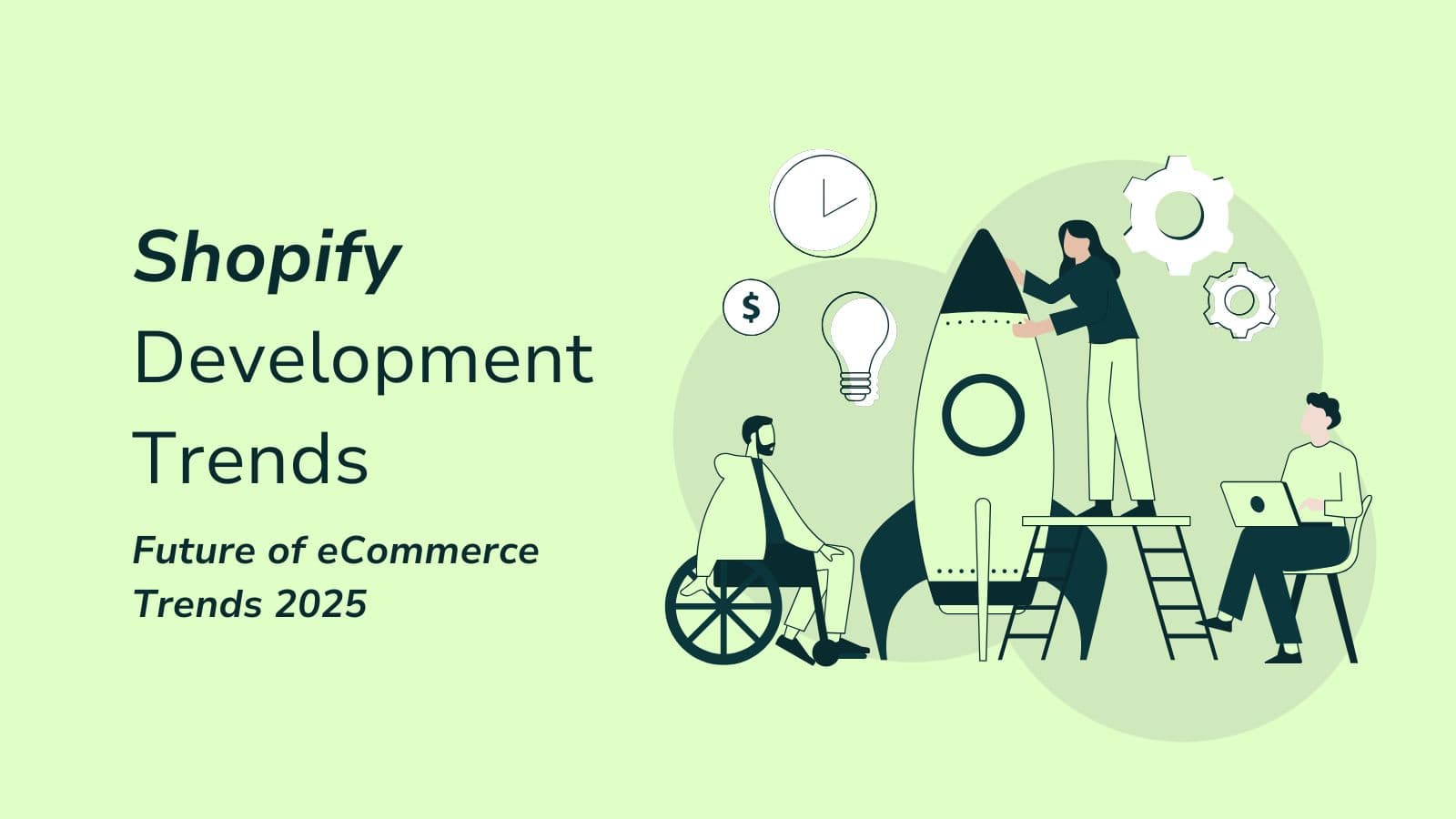
marketing
Future of eCommerce Trends 2025: Stay ahead in Shopify development
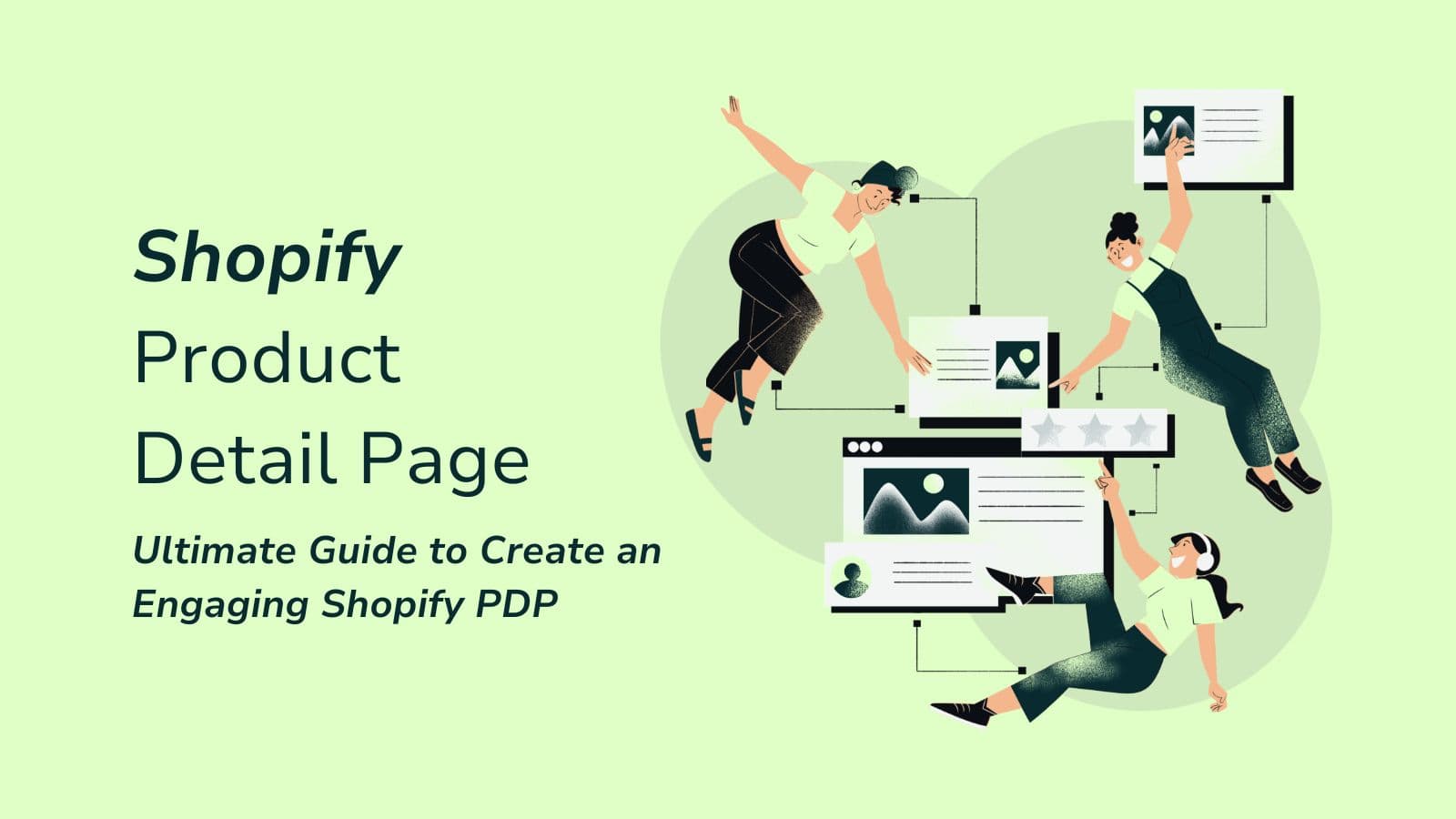
development
How to Create an Engaging Shopify Product Detail Page (PDP)

guides
Common Mistakes to Avoid When Setting Up Your Shopify Store
Frequently Asked Questions
We Know Everything Shopify!
What do we get in the FREE Consultation?
In general, anything you need to know. Having built over 50 Shopify stores allows us to give you advice on any matter you seek when it comes to eCommerce and conversions.
How long does it take to build a custom Shopify store?
The timeline for building a custom Shopify store can vary based on complexity and specific requirements. Generally, it takes anywhere from 2 to 6 weeks to complete a fully functional store, including design, development, and testing.
Can you help with migrating our existing store from another platform to Shopify?
Absolutely! We specialize in seamless store migrations from various eCommerce platforms to Shopify. We ensure that all your data, including products, customers, and orders, are transferred securely and efficiently.
What kind of support do you offer after the store is launched?
After launch, we provide ongoing support that includes troubleshooting, updates, and answering any questions you may have. Our goal is to ensure your store runs smoothly and meets your evolving needs.
Do you provide ongoing maintenance and updates for our eCommerce store?
Yes! We offer maintenance packages that include regular updates, performance checks, and troubleshooting to keep your store optimized and secure.
How do you ensure that the store is optimized for mobile devices?
We implement responsive design principles to ensure that your store looks great and functions well on all devices. This includes optimizing layouts, images, and navigation for mobile users.
Can we request specific design elements or features for our store?
Absolutely! Your vision is important to us. We welcome specific requests for design elements or features, and we’ll work closely with you to bring those ideas to life.
How do you handle SEO during the development process?
SEO is integrated into the development process by optimizing site structure, meta tags, alt text for images, and ensuring fast loading times. This helps improve your store's visibility in search engines from day one.
What is Conversion Rate Optimization (CRO) and why is it important for a Shopify store?
Conversion Rate Optimization is the process of enhancing your website to increase the percentage of visitors who complete a desired action, such as making a purchase. It's crucial because even small improvements in conversion rates can significantly boost your sales without increasing running costs.
How do you ensure that our Shopify store is SEO-friendly?
We implement SEO best practices during the development process by optimizing site structure, meta tags, alt text for images, and ensuring fast loading times. This helps improve your store's visibility in search engines from the start.